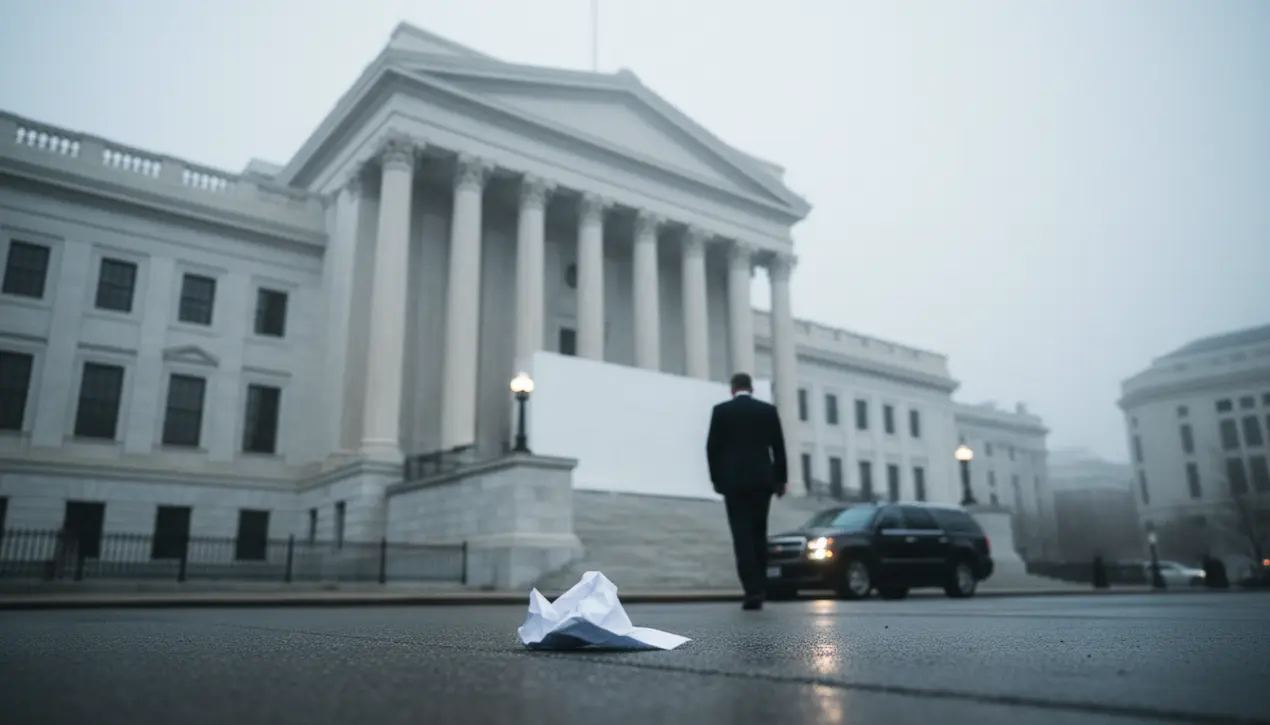
Politicscourts & investigationsLegal Precedents
Trump's revenge campaign falls flat
RO
Robert Hayes
16 hours ago7 min read1 comments
The judicial dismissal of cases against former FBI Director James Comey and New York Attorney General Letitia James represents a significant setback for President Donald Trump's publicly declared campaign of political retribution, revealing the enduring resilience of American legal institutions even under substantial executive pressure. This development stems from a ruling in the Eastern District of Virginia that found prosecutor Lindsey Halligan, the individual who brought the indictments, was illegally appointed as interim U.S. Attorney, a technical but foundational flaw that underscores the administration's struggle to weaponize the Justice Department through proper channels.The cases themselves—accusing Comey of lying to Congress and obstructing a proceeding, and James of bank fraud—were not merely legal actions but direct responses to Trump's explicit September solicitation on Truth Social, where he demanded prosecutions against these specific individuals, framing the inaction as 'killing our reputation and credibility. ' Historically, this pattern evokes concerning parallels with authoritarian leaders who use the legal system to neutralize political opponents, yet the American judiciary's intervention here demonstrates a crucial check on power that has, at times, faltered in other democracies.Simultaneously, the Defense Department's announcement of an investigation into Democratic Senator Mark Kelly, a retired Navy captain, for a video reminding service members they may refuse unlawful orders, signals a strategic pivot. This move, operating under the separate Uniform Code of Military Justice, suggests an expansion of tactics beyond the civilian criminal system into realms where presidential authority faces fewer immediate legal hurdles, a concerning escalation that tests the boundaries of civil-military relations.The flimsy pretext of Kelly's investigation contrasts sharply with the dismissed cases, highlighting an administration willing to explore every available avenue to pressure perceived enemies, even as its most high-profile legal assaults stumble. The core challenge for Trump has been a practical one: finding reputable lawyers willing to pursue these politically charged indictments, a difficulty that led to the appointment of Halligan and now the collapse of her cases.This is not the first time a president has faced constraints from within the legal bureaucracy; historical precedent shows that even powerful executives can be hamstrung by a lack of willing enforcers and robust institutional guardrails. However, the persistent intent, evidenced by the simultaneous pursuit of Kelly, indicates that these initial failures are unlikely to deter further attempts, potentially leading to more creative and legally ambiguous methods of intimidation.The broader picture is one of a tense stalemate: the rule of law is holding, but under sustained assault from an administration that clearly views the justice system as a tool for political warfare. The consequences of this ongoing conflict extend beyond the immediate targets, potentially eroding public trust in the neutrality of federal institutions and setting dangerous precedents for future administrations, regardless of party. As these legal and procedural battles unfold, they serve as a critical stress test for American democratic norms, with each dismissal a victory for institutional integrity, but each new investigation a reminder of the persistent threat.
#Trump administration
#political prosecutions
#legal challenges
#James Comey
#Letitia James
#Mark Kelly
#Department of Defense
#featured
Stay Informed. Act Smarter.
Get weekly highlights, major headlines, and expert insights — then put your knowledge to work in our live prediction markets.
Comments
Loading comments...
© 2025 Outpoll Service LTD. All rights reserved.